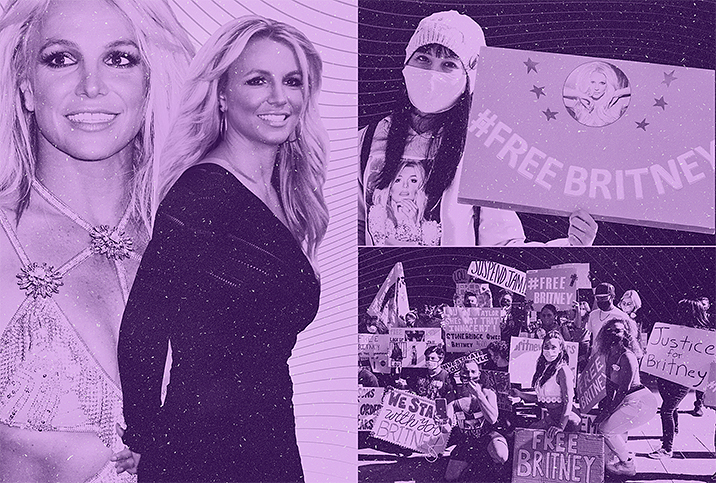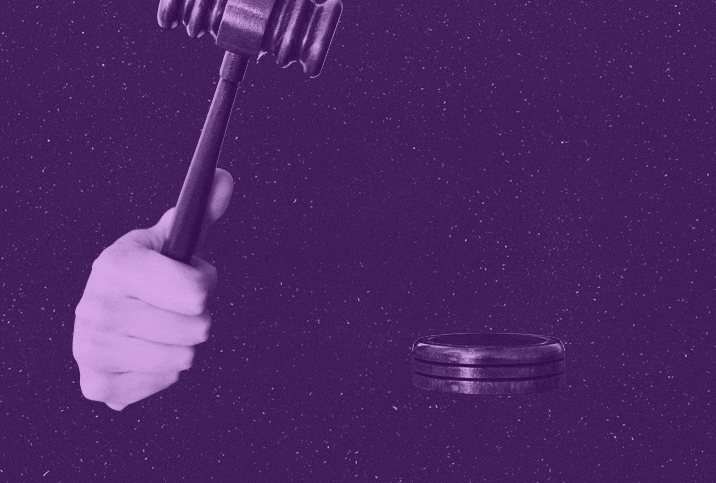What Conservatorship Means, from Britney to You

The documentary "The Battle for Britney: Fans, Cash and a Conservatorship," released in May 2021 on the BBC, reignited a public conversation surrounding singer-songwriter Britney Spears' mental health and financial independence.
Specifically called into question were how and why she was placed under a still-active conservatorship by her father 12 years ago during a grossly public mental breakdown. Her specific situation is a combination of misogyny, child-star abuse and the invasion of the press in the lives of celebrities. It was a perfect storm Spears continues to resist, as her fight to remove her father as her conservator continues.
Since the beginning of her conservatorship, the public's attitude toward Britney Spears has shifted. In the beginning, her plight was sensationalized in tabloid headlines, effectively dehumanizing her, the overall position being that she got what she deserved. However, "The Battle for Britney" has changed hearts and minds in her favor, with today's headlines looking back at this tumultuous time with regret and compassion for the then-teenager under immense pressure and public scrutiny.
Now when you see the word conservatorship, the name Britney Spears is probably your next thought. But what does it really mean and how easy is it for the courts to grant?
What is a conservatorship?

Conservatorships are primarily instituted for mentally ill, disabled and/or elderly people. In the case of severely mentally ill people, this applies to those experiencing psychosis, extreme suicidality, hallucinations and other severe symptoms.
If granted in court, a conservatorship allows a conservator to act on behalf of someone, who is then described as their ward. The conservator decides what the ward eats, where they live, their finances, access to medical care, entry into contracts, and in extreme cases, marriage and social and sexual relationships.
While most conservatorships are reasonable and equitable—and even welcomed—the vast power difference between the conservator and the ward can make the ward vulnerable to abuse. Even if the conservator has the best of intentions, the ward loses all basic rights and autonomy to make decisions that affect their life.
Alternatives to a conservatorship

Conservatorships are part of a larger issue, as they are simply a symptom of how mental illness and disability are addressed in our society. They represent a systemic pattern of treating mentally ill people as broken things to be fixed or hidden away from public view. However, people with mental illness are still whole—albeit with complex issues and trauma—and deserve compassion and care.
The root causes of mental illnesses can often be found within societal structures. While genetic predispositions are certainly present, developing mental illness rarely occurs in a vacuum. From domestic abuse to systemic racism to keeping up with an environment that's always changing, mentally ill people are often traumatized and poorly equipped to cope with their trauma in healthy ways.
Requiring psychiatric care at all opens a person's life to the opportunity of abuse, such as sexual abuse and overmedication. Being designated as a ward in a conservatorship can trap the mentally ill in a vicious cycle; for example, if their symptoms began as a response to domestic abuse, conservatorship leaves them at the mercy of their abusers.
When encountering mental illness, too often the immediate instinct is to interrogate what is wrong with the person instead of questioning what is wrong with their environment, and how to then change their surroundings in a way that is conducive to healing while maintaining their autonomy.
Finding an alternative to the legal institution of conservatorship would be a complex task, requiring the kind of trust and care of mentally ill people that simply do not exist in this world's establishment. The answer to how to truly care for mentally ill people is not one that can be easily solved in this discussion, or by any one person, but it's important to emphasize that conservatorship is not always the answer.
Lawyer and #FreeBritney advocate BJ Courville discusses the legality of conservatorships, the shoddy circumstances surrounding Britney Spears' conservatorship and important alternatives to the practice. Watch the full interview here.

















